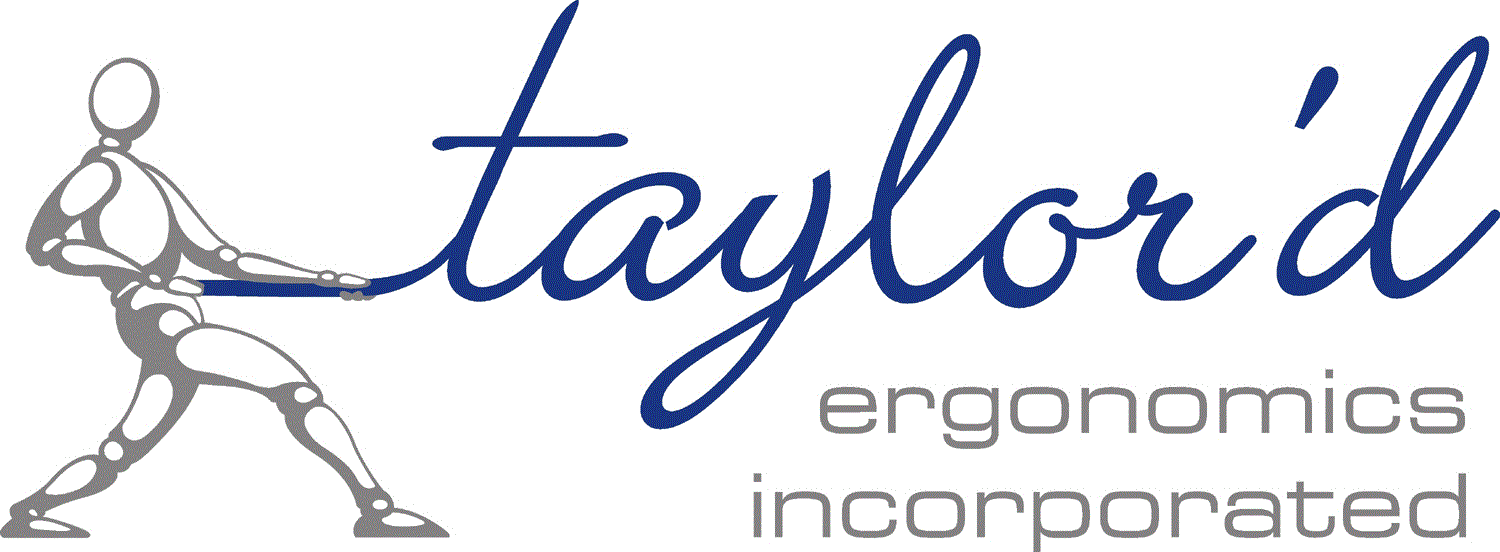Clarify job expectations for hiring, accommodations, or return-to-work.
We create detailed, data-driven job demand reports to support HR, disability management, and compliance.
A physical and cognitive demands Analysis (PCDA) is a detailed description of the activity and cognitive requirements of a job. A PCDA is used to provide information:
- to allow doctors to assess return-to-work offers for injured workers
- to allow the WSIB to evaluate claims or assess return-to-work options
- to allow employers and ergonomists to review the suitability of a specific job for a specific injured worker
- to assist rehab therapists in designing effective treatment plans
- to train new workers
A Taylor’d Ergo PCDA is uniquely effective. It provides:
- A quantitative and visual assessment. We measure forces, heights, reaches, and movement frequencies and durations, and we provide a photograph for each task to allow the reader to quickly understand the job.
- A validated report. Your management and worker representatives will review the report, ensuring that the report accurately represents the job. (A second ergonomist also reviews it in our office for quality control.)
- A report that links demands to tasks. If you need to make accommodations, you can clearly see which tasks are associated with which activities. A checklist cannot accomplish this.
How is it done? The ergonomist:
- Interviews supervisors and workers to clearly identify the primary job objective and the essential duties, and perceived cognitive and behavioural demands (such as multi-tasking, co-operative work, etc.).
- Observes the job to qualify and quantify the physical and cognitive demands for each of the most common and peak demands.
- Measures weights, push, pull and grip forces, working heights and reaches, and photographs each task, and creates a work station layout.
- Completes the PCDA, and submits the draft report to our office for peer review and feedback, and to the client for review and validation.
- Finalizes the PCDA report and issues an electronic read-only copy (most PCDAs are completed in 1-3 days total).
Contact Carrie in our main office for a quotation or more information, at 519.623.7733, or info@taylordergo.com.
Service Request
Feedback from clients:
"The way the PDCA was done has increased the level of understanding of the challenges employees face during their daily tasks. Engagement of the employees during the assessment was perceived as partnership and included an educational aspect, the employees involved were comfortable with the assessor in both providing feed-back and receiving advises related to ergonomics aspects of their work tasks."
“Having the PCDA’s put the organization in a more positive and professional position. It is viewed very highly by the members we deal with (WSIB, MOL, medical professionals). I also feel it makes the people working with claims management a lot more professional. Certainly the RTW benefits are undeniable. Working with Taylor’d ergonomics, [we] found the work to be exceptional, exactly what we need to as a tool to assist in our return-to-work process."
"Most often the case manager along with the doctor are provided information from the employee perspective of what their job entails. A proper PDA clearly identifies the required information to the case manager or to the doctor. The up-front cost of having PDAs for your facility without question will provide a return on the initial investment. One WSIB lost time claim can run an organization into the thousands of dollars. If you are the manager dealing with claims management you want the ability to provide significant supportive information that works for you.”

